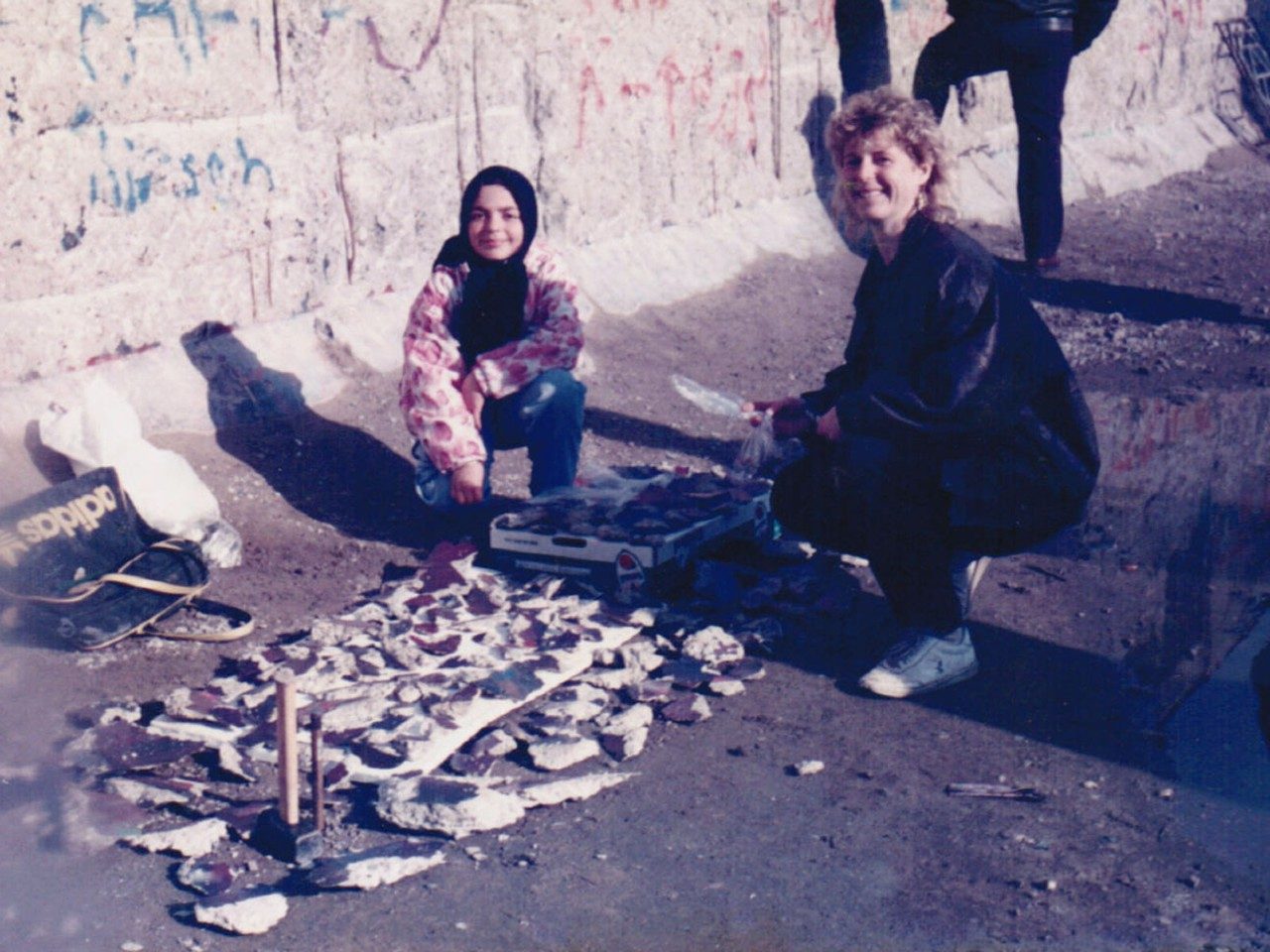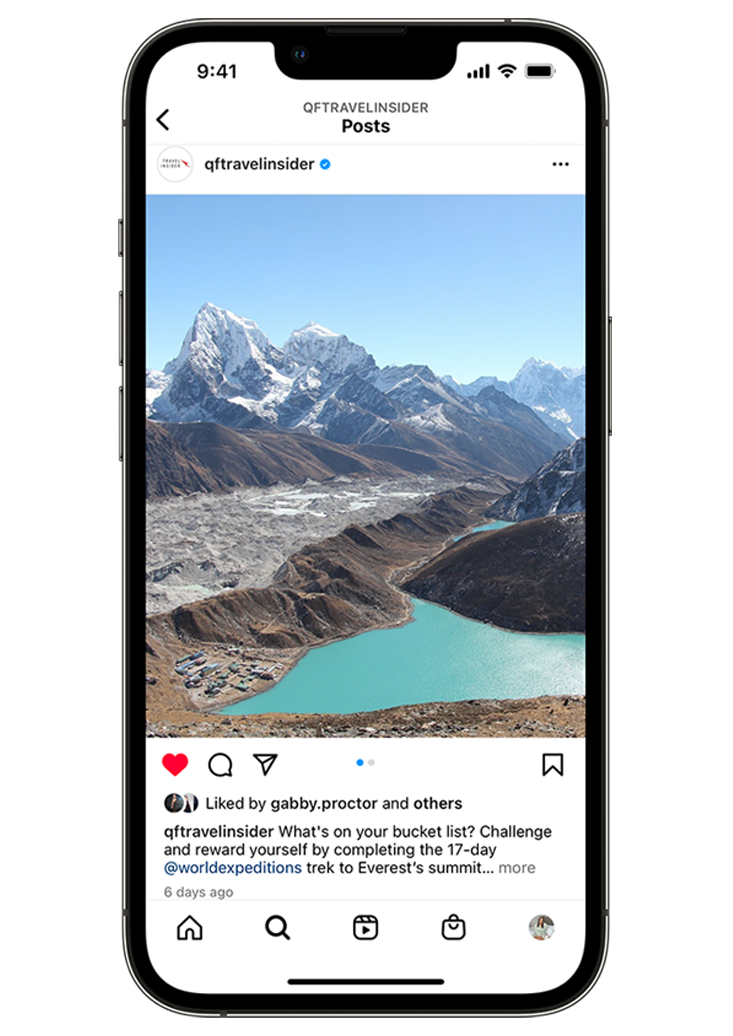Liane Moriarty on the Journey That Changed Her

This bestselling author’s souvenir of the Berlin Wall helped bring down the barriers in her own life.
New Year’s Eve, 1989. Icy-cold Berlin: David Hasselhoff stands in a bucket crane at Checkpoint Charlie, singing Looking for Freedom to an ecstatic crowd. It’s just under two months since the Berlin Wall came down.
New Year’s Eve, 1989. Hot, humid Sydney: my two younger sisters and I host a bon-voyage pool party in our parents’ backyard. We’re looking for freedom, too. The next day we are off backpacking around Europe. Except we don’t have backpacks. We have brightly coloured, wheeled suitcases given to us by our parents for Christmas. We have never been further than New Zealand. Never experienced the shock of flying into another season. We saw the Wall come down on the news and felt vague interest.
I’ll always remember our first day in London. The three of us walked around the home of Charles Dickens, hazy-headed and snappy and I thought, “Travel is horrible. Why did I dream of this?” Of course, the grey, pointless feeling passed (now I’d call it jet lag), replaced by exhilaration. The freedom made me dizzy. We could just decide to go to another country! On a whim! It was wonderful but terrifying. I hadn’t realised how I’d lived within such a tight radius, how my life’s routine controlled not only my days but also my thinking.
We had no iPhones or Google. Instead we had a brick-sized copy of Europe on $40 a Day. We made friends with other backpackers and left Post-it notes for them on noticeboards: “See you in Salzburg.” Things went wrong. After a turbulent flight, we landed in Barcelona without the right visas. The customs officials frightened us and then, after they let us in, we got badly ripped off by a taxi driver. The hostel was booked up. When we finally got to a cheap hotel room, we sobbed and wailed and passed a roll of toilet paper back and forth until we were laughing.
We took an overnight train to Berlin. Everywhere we looked were Mauerspechte – “Wall-peckers” with hammers and chisels, chipping away at the Wall. I bought my own small chunk from a little girl with a shopfront of pieces on the muddy ground. We went to the museum at Checkpoint Charlie and I was awe-struck by the escape stories. Ordinary people prepared to die for the freedom I took for granted.
I can go where I choose. I’ve always been able to go where I choose. I just never chose.
We returned to Sydney and I tried so hard not to live within the boundaries of invisible walls. I kept my piece of the Berlin Wall at the back of a drawer until one day, 20 years later, I found it and it gave me the first line of a novel that would change my life.
I can still see the face of the little girl who handed me my piece of the Wall. I was more than twice her age and yet she seemed so much more grown-up than me. I wonder where she is now and what she’s doing with her precious freedom. 
SEE ALSO: Jarryd James on the Journeys That Inspired Him


